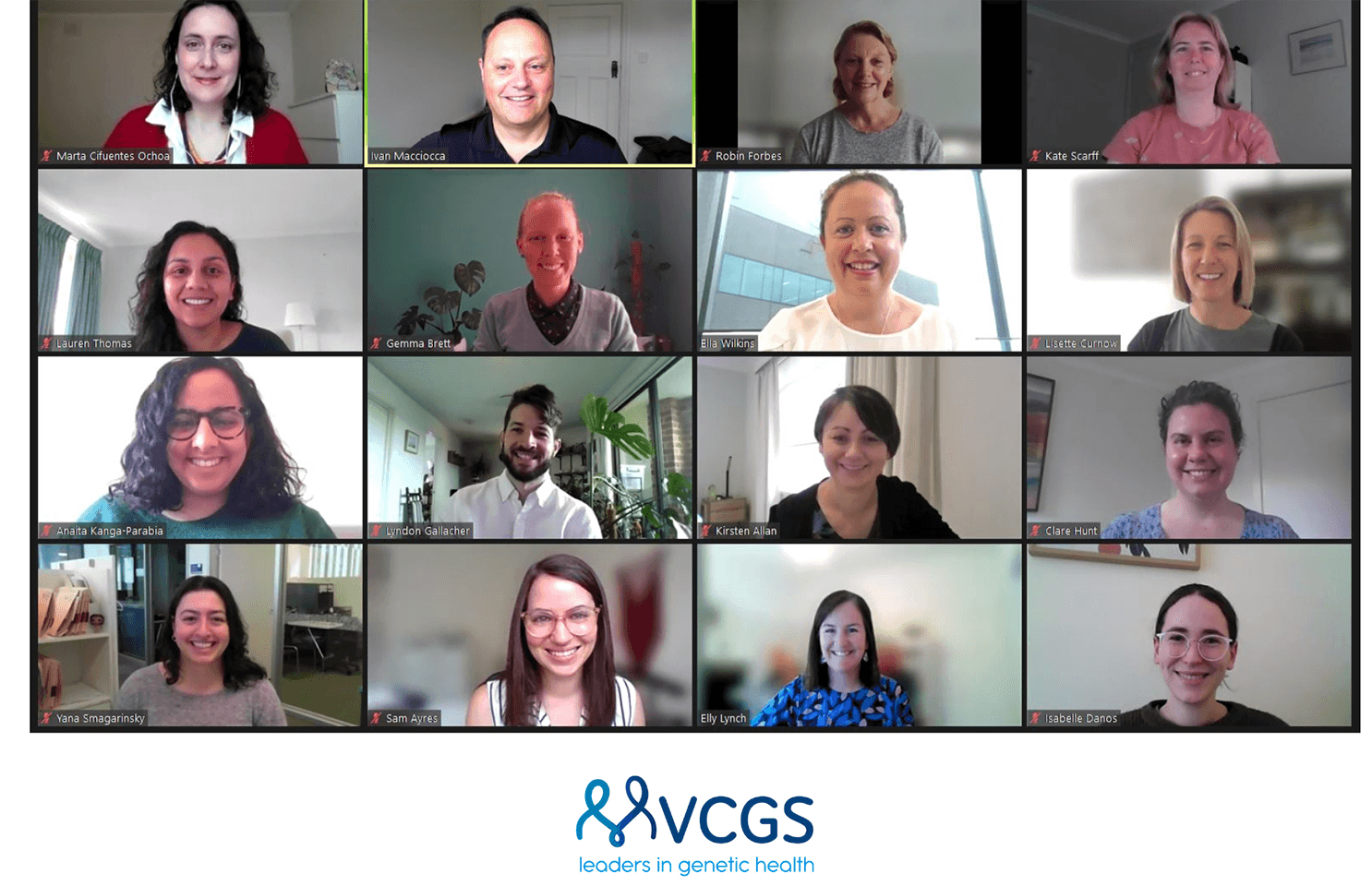Genetic Counsellors Awareness Day 2021
Genetic counsellors are an integral part of the genetic testing process, but there can be confusion about the profession and what they do.

Genetic counsellors are an integral part of the genetic testing process, but there can be confusion about the profession and what they do.
Today (4 November) is Genetic Counsellors Awareness Day and an opportunity worldwide to celebrate the profession and bring awareness to the value genetic counsellors bring.
This year, Victorian Clinical Genetics Services (VCGS) would like to present some of our very own genetic counsellors to answer common questions about the profession.
What is the role of a genetic counsellor?
The role of a genetic counsellor is varied. Genetics can seem complex, and a genetic counsellor can help individuals, couples or families assess what is right for them. Once a test result is received, they will have the opportunity to speak with a genetic counsellor to help understand what they mean and provide practical and emotional support if needed.
Learn more about genetic counselling from Dr Ali Archibald, a Group Leader of the Reproductive Genetic Counselling team at VCGS.
When and why would I see a genetic counsellor?
There are many areas of health where you may come across a genetic counsellor. Genetic counsellors can work in a range of areas, such as cardiology, cancer, neurology, pregnancy, paediatric and adult healthcare. You may speak to a genetic counsellor before or after receiving testing in one of these areas.
What does genetic counselling involve?
Genetic counsellors assist patients on their genetic health journey. This involves helping patients understand the testing available, as well as supporting individuals and families to understand their results.
How might a genetic counsellor help me?
Genetic counsellors have a very specialised role in translating genetic information into something that is meaningful to patients. They guide their patients through emotions that might come with receiving a complex result. They can also connect their patients with a range of other health care professions as required.
Listen to Natasha speak about how a genetic counsellor helped her and her partner.
Why is genetic counselling important?
Genetic counsellors are important for bridging the information gap between patients and their genetic health options. Genetic counselling is important for individuals, couples, and families to understand potential genetic risks and can ensure they are fully informed in decision making.
“Genetic counsellors are trained specialists who talk and listen to individuals and families, help communicate complex genetic information and help facilitate decision making in a supportive environment” said Ivan Macciocca, Principal Genetic Counsellor at Victorian Clinical Genetic Services.
“At the heart of everything we do, is listening to our patients and making sure they’re supported through their entire genetic testing journey,” said Ivan.